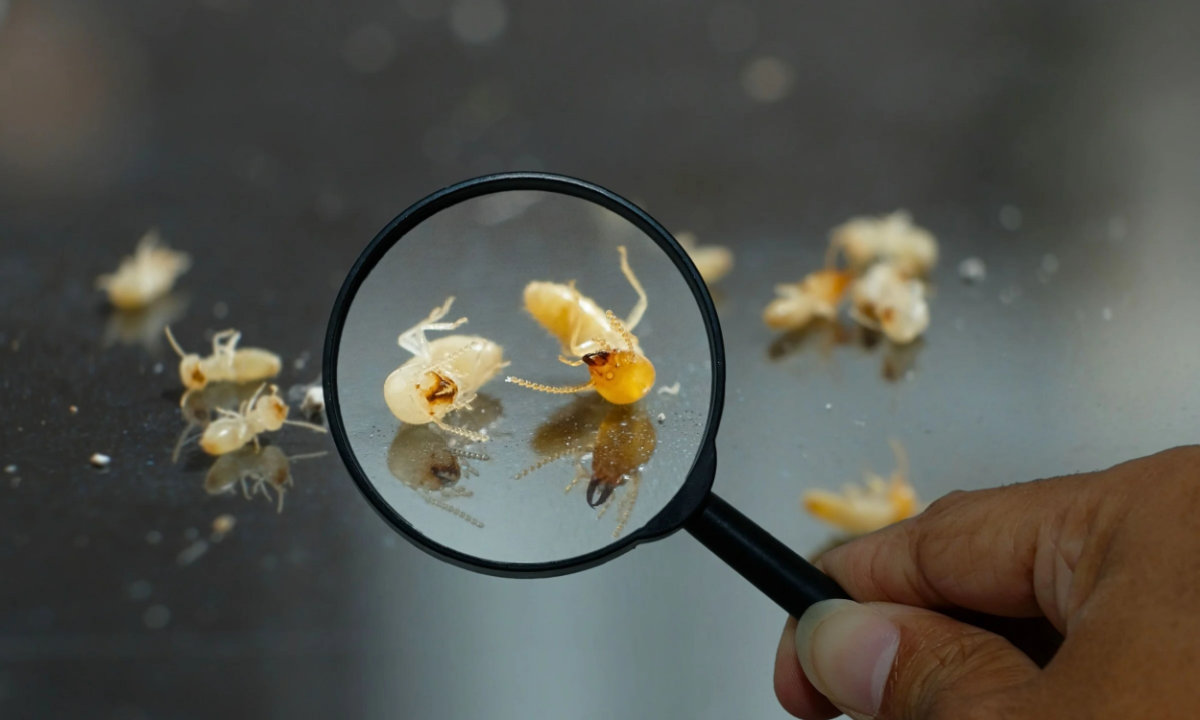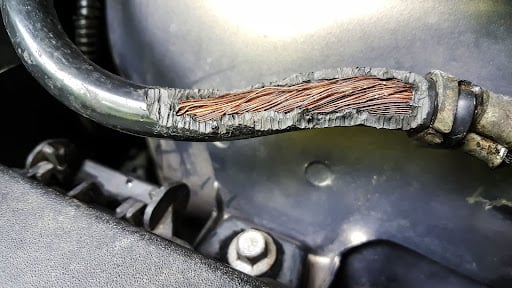As many as 1 in 5 people in the US have dealt with a bed bug infestation or know someone who has.
Unfortunately, bed bugs can strike when you least expect them, as they can easily be picked up in hotel rooms, cruise ships, or even on public transportation.
Once inside, bed bugs spread throughout the home and become increasingly difficult to control.
By understanding what causes bed bugs and how to get rid of them, you can control an infestation quickly before it is too late.
What Causes Bed Bugs?
Bed bugs commonly enter homes by hitching a ride on luggage, used furniture, and anything else that moves from place to place. A common misconception is that having bed bugs indicates poor hygiene or a dirty home; however, this is not usually the case.
Many people unknowingly bring bed bugs home after traveling and staying in hotels, as these tiny pests can cling to your suitcase and make their way into your home without you knowing.
How to Check for Bed Bugs
Bed bugs spread quickly and tend to hide where they won’t be found.
Bed bugs are most commonly found in mattresses, box springs, electrical outlets, couches, armchairs, and underneath loose wallpaper and wall hangings.
Bed bug bites will be a sure sign of an infestation, as well as specks of blood on your clothing or sheets and a musty odor that pervades the room.
Residents can visually inspect the areas outlined above, though professional assistance will yield the best results. Our team of experts uses K9 services for bed bug removal in New Jersey that can identify the presence of bed bugs in every corner of your home with almost 100% accuracy.
Once you spot the presence of bed bugs, time is of the essence. Here are nine steps to get rid of bed bugs quickly.
9 Steps to Get Rid of Bed Bugs
1. Clean Your Home
Keeping a clean home is an important way to prevent any kind of pest from invading your space, and bed bugs are no exception. While having bed bugs is not indicative of a messy or unclean home, it can still be beneficial to regularly vacuum your carpets and furniture, as this will inadvertently sweep up any bed bugs you may unknowingly have.
A clean home will also provide fewer spaces for bed bugs to hide, making it easier to spot them with the naked eye.
2. Reach Out to a Professional
The sooner you can work with an exterminator to combat a bed bug infestation, the lower your pest control prices and the better your results will be.
However, if you still wish to treat a bed bug infestation DIY, keep reading on.
3. Dismantle Your Bed Frame
Once bed bugs are identified, dismantle your bed frame and then vacuum it to remove any bed bugs caught in the mattress or box spring.
4. Caulk and Seal All Entry and Exit Ways
Next, caulk and seal any openings on the interior and exterior of your home to prevent bed bugs from entering or returning. This can be done yourself using a silicone caulk to seal up any entryways bed bugs may be using to get into your home.
While bed bugs don’t enter naturally like cockroaches, sealing any openings allows you to contain an infestation easier.
5. Scrub Infected Surfaces
Thoroughly scrubbing any infected surfaces to kill any remaining bed bugs. The cleaning tools you use will depend on the surfaces you’re disinfecting, such as using a vacuum to get in between couch cushions or a countertop spray to wipe down hard surfaces.
6. Wash and Dry All Infested Clothing
Infested clothing could have dormant bed bugs you may not be aware of.
Wash and dry all clothing that bed bugs may have come into contact with to ensure they are gone for good. It is best to wash and dry clothing and linens on high heat, as bed bugs cannot survive high temperatures.
7. Steam Your Mattress or Use a Mattress Liner
As a precaution, we highly recommend steaming your mattress or installing a mattress liner.
The hot steam will likely kill them after several minutes of being exposed to the high temperature. Using a mattress liner can also be effective in killing bed bugs since the liner will seal the pests from within and keep them from feeding on you at night while you treat the infestation.
8. Spray an Insecticide Around Infested Areas
There are several insecticides available for purchase that can help kill bed bugs, as well as some more natural, non-toxic options. Brands like Raid and Hot Shot offer their own bed bug insecticides designed to target and kill these pests, and tea tree oil, baking soda, and diatomaceous earth can also be used for a more natural approach that is safe to use around the house.
9. Perform an Inspection
You may be able to find bed bugs yourself by checking the places they normally like to hide, such as mattresses and furniture, but contacting a pest control professional to perform a proper inspection is always your best option. A trained professional will know exactly where to look and will be able to identify bed bugs before coming up with a unique treatment plan to target the infestation.
Should You Call an Exterminator?
You should always reach out to an exterminator at the first signs of bed bugs in your home. A trusted pest control professional will be able to inspect your home to assess the severity of the infestation and come up with a unique treatment plan to eliminate these pests and prevent them from returning.
At Anchor Pest Control, we offer an all-inclusive Pest-Protect 365 plan with active bed bug protection so that you are protected in the future. If you’ve ever dealt with bed bugs or are just getting over an infestation, this product can give you much better peace of mind.
Tips for Effective Bed Bug Prevention
Of course, the best way to get rid of bed bugs permanently is to practice proper precautions and preventive pest control. Here are some bed bug prevention tips to assist you:
- Inspect secondhand items before bringing them into your home
- Seal cracks and crevices in the home
- Clean up unnecessary clutter
- Wrap furniture in bed bug wrap
- Avoid shared laundromats
When it comes to getting rid of bed bugs and keeping them out, your best plan of action is to contact a pest control company to assess and treat the problem. Bed bugs are incredibly difficult to get rid of on your own, and you could end up doing more damage in the long run if you ignore the problem or try to handle it yourself.
FAQs
Do you need to throw out your mattress if it’s been infested with bed bugs?
Your knee-jerk reaction after discovering a bed bug infestation may be to get rid of your mattress altogether, but doing this can end up doing more harm than good. When you remove a mattress from your home without treating it, you could spread bed bugs to other areas of your home. Additionally, getting a new mattress won’t necessarily solve the problem since the remaining bed bugs in your home will likely reinfest the new mattress.
If you discover bed bugs on your mattress, immediately strip all of the bed linens off and wash them with hot water. Then, contact a trusted exterminator to treat the mattress and inspect the rest of your home.
Do bed bugs eventually go away?
Bed bugs are some of the most difficult pests to get rid of, so don’t count on them going away on their own. Getting rid of bed bugs almost always requires treatment from a professional, so don’t wait to reach out to a pest control company at the first sign of a bed bug infestation.
What keeps bed bugs off of you at night?
You can keep bed bugs off of you at night by washing and drying your bedding on high heat, as well as using a mattress and box spring cover. Sleeping in long-sleeved clothing can also help, but the only long-term solution for getting rid of bed bugs is by enlisting the help of a professional.




